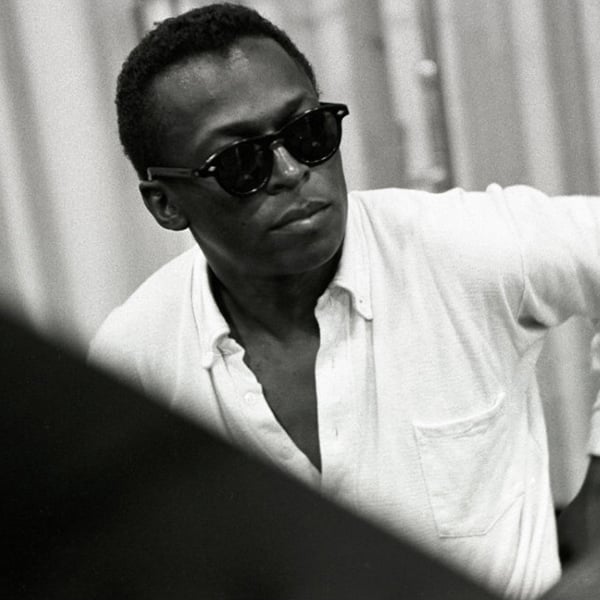
Recorded in two sessions a month apart in early 1963—each with a different quintet—Seven Steps is proof positive that by this point of Miles’ career, any group he assembled was going to yield top-level music: inspired, rhythmically charged, and highly original. “I pay no attention to what the critics say about me,” Miles asserted in the liner notes, explaining the “how” of his musical consistency. “The toughest critic I got, and the only one I worry about, is myself. The music has to get past me.”
That Miles’ lineup shifted in a matter of weeks emphasizes the transitional state he was in as 1963 started. Wynton Kelly, Jimmy Cobb, and Paul Chambers—the bassist had been with him since 1955—had departed and formed their own trio. Saxophonist George Coleman stuck around, and was joined by bassist Ron Carter and—for a brief tour and one session—drummer Frank Butler and pianist/composer Victor Feldman. With them he recorded a relaxed redesign of the New Orleans chestnut “Basin Street Blues,” a “classic” blues from the 1920s, “Baby Won’t You Please Come Home,” and “I Fall In Love Too Easily,” a trumpet feature he would favor in live shows through the 1960s.
With Feldman, he co-wrote the album’s two outstanding originals—the title track and “Joshua”—and he liked them both enough to record them first with the April group in Los Angeles, and a month later with a new band in New York City: Coleman, Carter, plus the young pianist Herbie Hancock and the even younger drummer Tony Williams—17 at the time! It was the latter lineup that delivered the well-known versions of “Seven Steps” and “Joshua,” both distinguished by finger-popping themes and catchy rhythmic breaks (tailor-made for Williams’ already lithe and confident drum-play.) Both tunes became late-night radio staples covered by multiple groups in the 1960s, pushing Miles’ popularity further into the mainstream.
Significantly, these two tracks—plus the wistful “So Near So Far,” co-written by British beboppers Tony Crombie and Benny Green—debut the rhythmic core of Miles’ most celebrated group. By fall of 1964, when Wayne Shorter took over the saxophone chair, all members of the era-defining Second Great Quintet would be in place.









